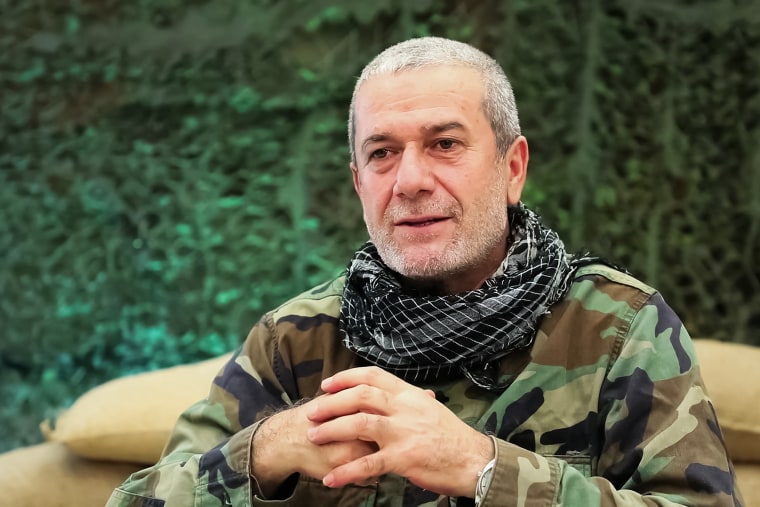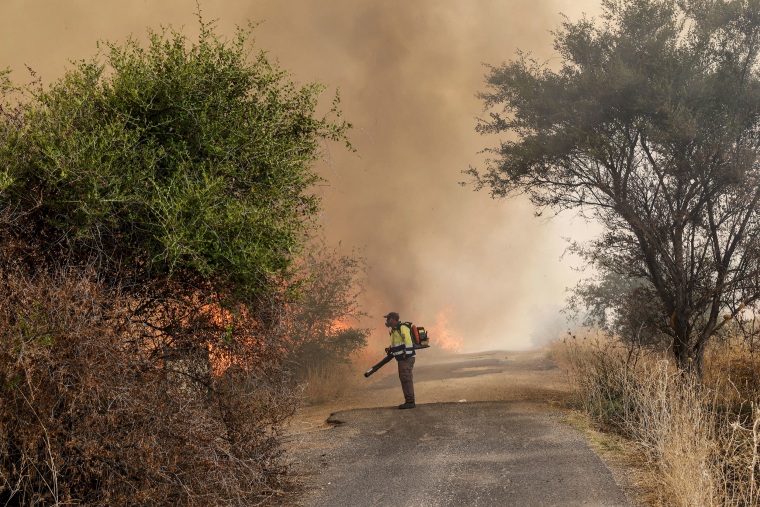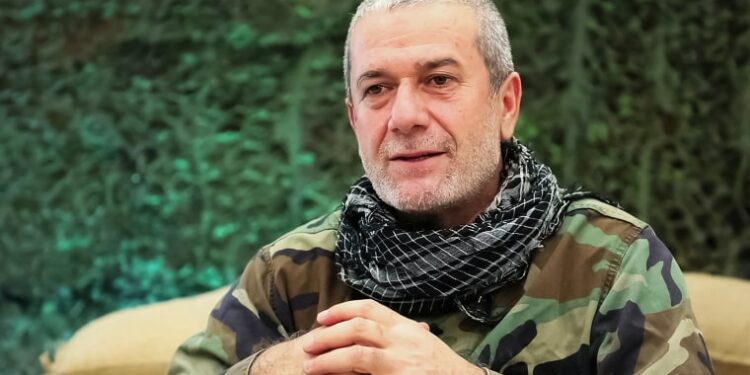Lebanese militant group Hezbollah fired a barrage of rockets towards Israel Thursday in retaliation for the killing of a senior commander amid growing fears of a new escalation in fighting on Lebanon’s southern border with Israel.
In one of the largest attacks in recent months, the Iran-backed militia said in a statement that it had fired over 200 rockets at several Israeli military facilities. In a separate statement late Wednesday, Hezbollah said it had fired over 100 rockets at bases near Israel’s northern border.
Both attacks came after the group confirmed that Muhammad Na’ima Nasser, one its senior field commanders, had been killed in the southern Lebanese city of Tyre.
The Israeli military later confirmed that they “struck and eliminated” Nasser, who was also known as Hajj Abu Na’ima, in a statement Wednesday.

The statement said he was a commander with Hezbollah’s Aziz Unit, “responsible for firing from southwestern Lebanon at Israeli territory.”
The Israel Defense Forces also accused Nasser of directing “a large number of terror attacks” toward Israel, both during and before the start of the war with Hamas in Gaza. It did not say where or how Nasser was killed.
After the first wave of Hezbollah attacks on Wednesday, the IDF said some of the projectiles were intercepted and some fell in the area of Kiryat Shmona, a city near the Lebanese border, but the majority of the launches fell in open areas. It added that its forces struck a Hezbollah launcher that was used to fire the barrages.
Magen David Adom, the Israeli counterpart of the American Red Cross, said there were no casualties reported. It is unclear if anyone was killed or injured in the second wave of strikes.
The day after Hamas-led terrorist attacks on Oct. 7, Hezbollah announced its solidarity with the group — which is also backed by Iran — and began a near-daily barrage of missile and rocket attacks over Israel’s southern border.
The fighting has ratcheted up in recent weeks with Hezbollah using increasingly sophisticated weapons to fire far deeper into Israel. After another of its senior commanders, Taleb Abdallah, was killed last month, the group fired a large barrages of drones and rockets at Israel.
The IDF said Wednesday Nasser and Abdallah “served as two of the most significant Hezbollah terrorists in southern Lebanon.”
Israel has been firing back with greater frequency, and its leadership has become increasingly bellicose, threatening to invade Lebanon and take Hezbollah head-on.
It has also evacuated about 60,000 people from more than 40 northern communities. On the Lebanese side, the fighting has displaced around 74,500 people, according to the International Organization for Migration.
The tit-for-tat attacks come as fears grow that the conflict could escalate into a wider confrontation on Israel’s northern border, as the war in Gaza continues to rage on more than eight months after Hamas’ Oct. 7 attacks that saw 1,200 people killed and resulted in around 250 taken hostage. Nearly 38,000 have been killed in Gaza in the offensive that followed, health officials in the enclave have said.

Meanwhile, in Israel, Prime Minister Benjamin Netanyahu will convene his security cabinet on Thursday evening to discuss new Hamas positions on a cease-fire deal in Gaza, an Israeli official confirmed to NBC News Thursday.
Israel received Hamas’ response on Wednesday to a proposal made public at the end of May by President Joe Biden that would include the release of about 120 hostages remaining in Gaza in addition to a cease-fire.
In a statement late Wednesday, Hamas said Ismail Haniyeh, the head of its political bureau, spoke with mediators in Qatar, Egypt and Turkey about reaching a deal to end the war. “The movement dealt in a positive spirit with the content of the ongoing deliberations,” it said.
Both sides have struggled to arrive at a long-term agreement to end the bloodshed as Netanyahu has vowed the war would continue until Hamas is completely obliterated.
However, he said last month the “intensive” phase of Israel’s offensive in Gaza would end soon, and that would allow a shift in focus to the simmering conflict on the country’s northern border with Lebanon.
Hamas meanwhile, has said it won’t stop fighting until there is a permanent cease-fire in place and Israel fully withdraws from Gaza.







